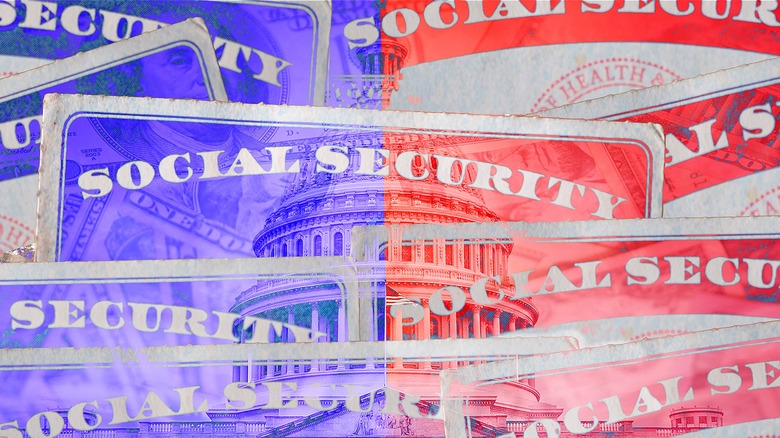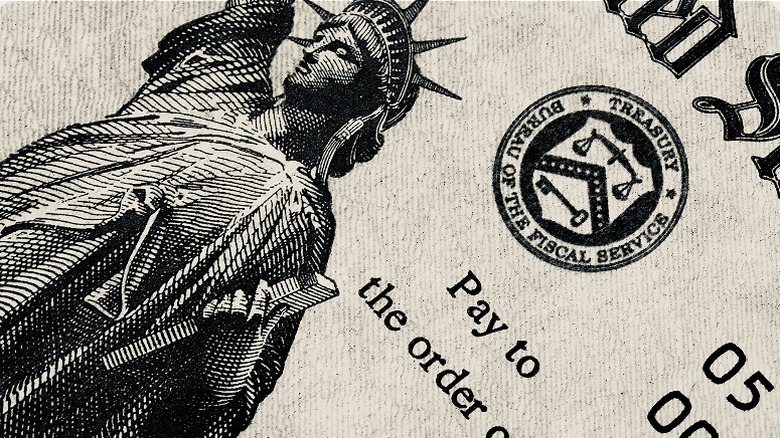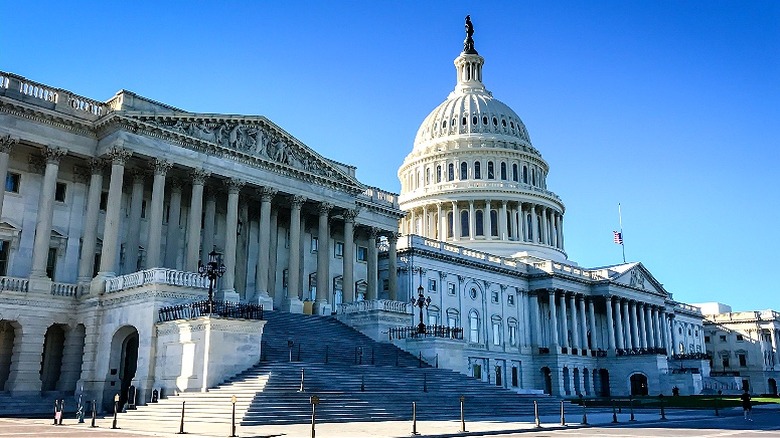A New Bill Could Significantly Impact Social Security Benefits
After decades of complaints, public sector retirees could finally have a win for their Social Security benefits by the end of the year. As of mid-September 2024, the House of Representatives had enough signatures to force a vote on a new bill that's been a long-time coming. Their bill, the Social Security Fairness Act, would repeal two specific rules — the Windfall Elimination Provision (WEP), and the Government Pension Offset (GPO). For decades, these rules have reduced Social Security benefits for ~3 million retirees who also collect pensions.
Put into place in the late 1970s and early '80s, both rules were part of larger Social Security fiscal policy changes that also saw the introduction of taxes on Social Security benefits payments. While the rules are meant to effectively even the retirement playing field, affected workers see the rules as unfair. It's also worth emphasizing that the bulk of the employees affected by these rules are public sector employees in positions that many would argue deserve more reward instead of less. As Mary Johnson, an independent Social Security and Medicare policy analyst, told USA Today, "They should not be penalized for having worked as firefighters, teachers, or any other government job. Hard working people deserve to receive the full amount of their Social Security benefits."
While the fate of this bipartisan bill remains to be seen, and some skeptics argue that the rules for both policies should be altered instead of entirely repealed, the fact it will be brought to a vote at all has left many retirees hopeful for progress.
What are the WEP and GPO?
When looking at how the Windfall Elimination Provision and Government Pension Offset affect Social Security benefits, it's important to first understand just how these two laws work. For starters, there's a difference between covered pensions, or employment that withholds Social Security taxes from wages; and non-covered pensions, or employment that doesn't withhold Social Security taxes from wages, which typically affects public sector state and local government employees.
With that in mind, the WEP reduces total Social Security amounts (this can be up to half a person's pension amount) for those receiving non-covered pension income that didn't contribute any Social Security payroll taxes. The GPO, on the other hand, reduces survivor and spouse benefits for those with non-covered pensions. While the GPO affects fewer people than the WEP does, the benefit cuts can be extreme (up to two-thirds of a person's pension amount). The logic behind this offset is that it would ensure that those with either covered or non-covered spousal and widow(er) benefits would end up with roughly equal lifetime earnings.
The WEP and GPO rules were put into place with the intention of preventing Social Security from essentially overpaying people who happened to work in non-covered pension positions. In this way, government workers would receive the same Social Security calculation advantages as low-income workers do (who generally experience a higher percentage of replaced prior earnings). However, the rules fail to take into account any public sector employee who might also work other non-public sector jobs that do pay into Social Security through their covered pension employment.
What's next for the Social Security Fairness Act?
Not only does the Social Security Fairness Act still need to be voted on by congressional House members, but if the bill passes, it would then need to get through the Senate. For supporters of the bill, there's good news on this front. The bill already has 327 co-sponsors in the House and 62 co-sponsors in the Senate, meaning it could be the rare bipartisan-supported bill to actually become reality even amidst growing political divisiveness.
Despite this support, however, it's difficult to argue with those who point to the potential financial loss that could happen as a result of repealing both the WEP and GPO. According to Congressional Budget Office estimates, eliminating both rules would cost ~$196 billion over the next decade. This is an especially difficult pill to swallow when you consider the financial cliff that's already looming for Social Security (its funds are currently due to run out in 2035).
Some have argued instead for replacing the current WEP and GPO rules. Said Maya MacGuineas, president of the Committee for a Responsible Federal Budget, "The WEP and GPO provisions aren't perfect, but repealing them without a replacement would cost [...] billion[s], make Social Security less fair, and advance insolvency even sooner than projected."
According to the International Association of Fire Fighters, who have actively been lobbying on behalf of the Social Security Fairness Act, lawmakers expect the bill to be voted on when Congress returns to session in mid-November (after the presidential election, which could have far reaching implications for even more elements of Social Security).


